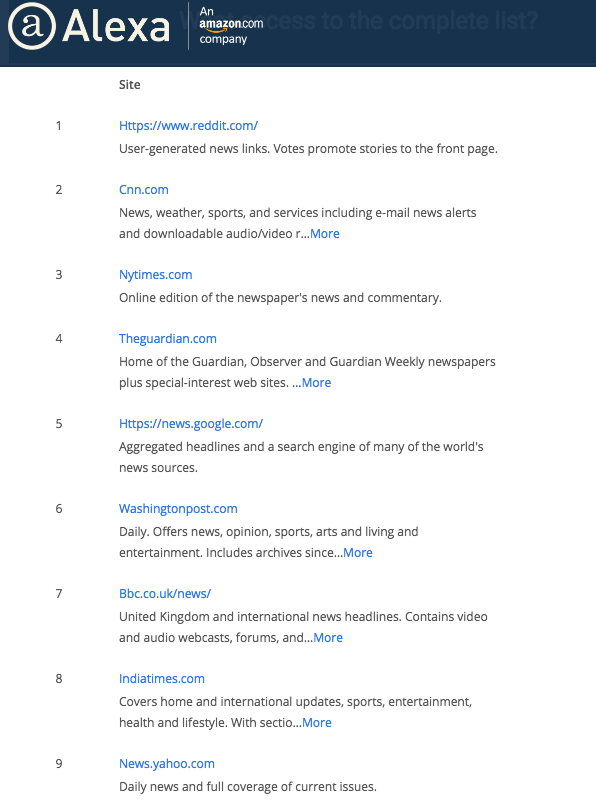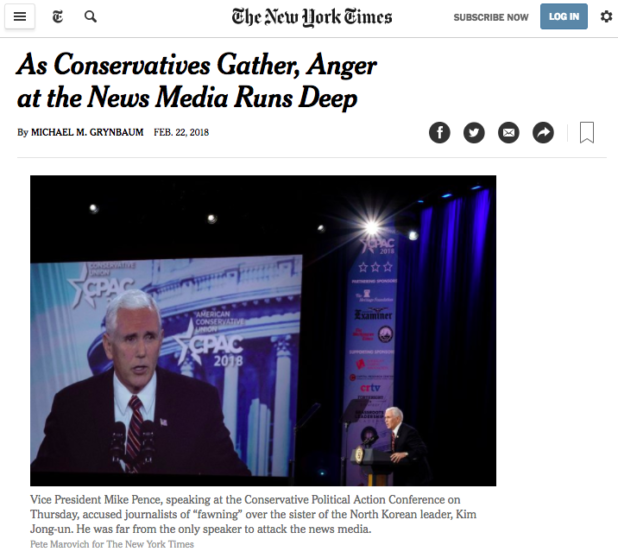Andrew Anglin
Daily Stormer
February 28, 2018
You had a good run, you sons of bitches. I’ll see you in hell.
Newsweek is having another bad week.
Looming investigations into Newsweek Media Group’s finances have demoralized the legacy magazine’s staff and left a cloud of doubt over the company’s long-term future. But now the company faces another more immediate issue: Whether it can stay in its New York headquarters.
Guardian Life Insurance, the sub-landlord for the company’s downtown Manhattan office, informed International Business Times Inc. in late November that it owed several hundred thousand dollars representing “unpaid, delinquent rent and additional rent.”
According an affidavit filed in New York County court in mid February, Guardian claims IBT currently owes the landlord $303,466 in rent.
The Daily Beast reached out to Newsweek prior to the publication of this story. After its publication, Newsweek provided comment: “Newsweek Media Group’s landlord discontinued all proceedings and withdrew all notices against the company. Newsweek Media Group is up to date on all rental payments.” When asked to provide documentation or clarification proving that, the spokesperson declined.
LOL
This is a real disaster. They are just lying about having paid their rent, out of embarrassment – but what if the landlord comes out and is like “yeah, no – they still owe it”?
I guess their theory there is: “we can’t look like any bigger assholes than we already do.”
The saga began in November, when Guardian filed several notices demanding IBT pay its rent and utilities or else the tenancy would be “terminated in accordance with your lease.” By December 4, a notice of petition filed by Guardian said the online newspaper’s debt to its landlord ballooned to $452,000 plus interest.
The documents showed that the company did not pay rent promptly for both November and December 2017 for its fifth- and partial sixth-floor spaces at 7 Hanover Square, resulting in $138,530 in unpaid rent alone.
And that rent was the tip of the iceberg.
The article goes on and on about them not paying for things and then arguing with the building owners. Presumably, they’ve just stopped paying completely now because they know the company is going to collapse. The name of the magazine has been so shitted-up over the last few years that it isn’t worth trying to sell the company.
It’s owned by a Korean-led religious cult. The goals of that cult are unclear, but it is clear that whatever those goals are, they’re not very good at accomplishing them.
And they’re under federal investigation, apparently for tax fraud and various other things, which would probably make selling it impossible.
They got caught in the fake-traffic scandal recently, which is also a relatively serious form of fraud which they may be prosecuted and/or sued over. And the advertisers have all pulled out, which means there is no more money the owners can grab there.
So it’s a countdown to collapse.
The Future of Media
All of the legacy media institutions are having troubles. Even the ones that are doing the best as far as traffic are putting-up paywalls.
The New York Times keeps telling me that if I give them ten bucks a month, they’ll “hold power to account.”
Basically, along with losing their credibility due to the rise of alternative media (that is offering a more critical view of reality) and the political situation which has caused them to lose their minds, the issue is that the business model is no longer sustainable.
Newspapers used to sell the printed version and the ads in the paper both. And they didn’t have any competition. Physical papers had been disappearing for a while due to the internet, but it really became total in the last ten years, with smartphones, tablets and small laptops allowing people to carry around the paper, rather than having to sit at a desk to read it.
They have never altered their business model significantly. The very nature of the internet makes the idea of having an actual office – let alone one in downtown Manhattan – absurd. It also largely makes hiring staffers pointless. You can have regular writers, some on some kind of loose contract, who work online and cut your operation costs by two-thirds. But there is no easy way, when you’re a newspaper that started on a completely different model, to make that switch.
The internet itself has also changed the kinds of news people want to read, and created all of these niche markets. At the same time that printed news disappeared, there became less distinction between alternative and mainstream media – they are both just websites. So there is all of this totally new competition, while the legacy media is unable to even figure out what is going on.
We have seen a bunch of heavily-funded operations pop-up as establishment “new media” outlets. Huffington Post, The Hill, Politico and Daily Beast are examples of outlets that are closing in on matching the readership of NYT or WaPo, yet are much more financially viable. You’ll note that none of those four I’ve mentioned have done the paywall thing – the only companies doing that are the ones functioning on the old model of “gigantic east coast office with hundreds of employees working there.”
Beyond their financial inviability, they are also having a difficult time working narratives. Basically the entire purpose of leftist media in current year is to whip people up into a frenzy in order to get the most aggressive possible support for their radical agenda. They understand that, they just don’t understand the mechanics of doing that in the new environment.
The thing about the internet age is that they no longer have full control of information – in fact, the opposite is true. All information in the world is at our fingertips. So when the media simply lies, as has been their policy historically, the alternative media and people on social media are able to demonstrate that they are lying – or at least give a very detailed and fact-based explanation of why they are probably lying.
So the new realm of media hoaxing is in working spin on topics. You will actually find fewer lies on Huffington Post than you will find on Washington Post – the former is capable of using the new media mode of influence, which is spinning a moving bias-based narrative. There are so many facts these days that the facts don’t even really matter to most people – especially people prone to leftism.
Right now, in the face of criticism from Donald Trump and the right as a whole, the legacy media is attempting to assert itself by claiming it is “the media” and is, as an institution, above reproach.
The NYT, WaPo and CNN have declared themselves the arbiters of reality itself, attempting to equate criticism of them with criticism of reality itself.
They have even implied, continually, that the President claiming that they are lying is a violation of the First Amendment.
This is some kind of bizarre last stand.
The issue is that people don’t really even care what is true and what isn’t, they just want their existing biases to be pandered to. So faking a bunch of insider sources and claiming Donald Trump is a Russian agent, as the old media has done, is actually less efficient than just reporting Donald Trump’s actual statements and saying “he is a really mean person, look at this tranny who has his feelings hurt” like Huffington Post is doing. And not only is the former less efficient in terms of moving people toward action, it leads to a credibility collapse, where you just become a joke.
If you combine the financial and credibility crises, it makes sense that journalists are jumping ship from old established companies to new media platforms.
Basically, I think in the relatively near future the new media platforms will become the accepted standard. This is good for us, because there isn’t much difference in terms of credibility between Daily Beast and Daily Stormer – they are both just politically biased news websites run by people openly pushing a specific agenda.
 Daily Stormer The Most Censored Publication in History
Daily Stormer The Most Censored Publication in History







